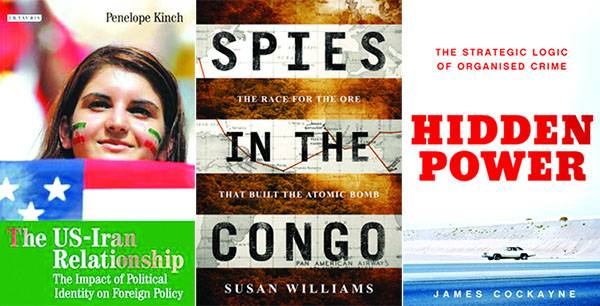
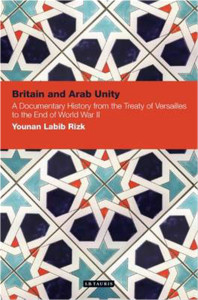
Britain and Arab Unity: A Documentary History from the Treaty of Versailles to the End of World War II
Younan Labib Rizk
I B Tauris (hardcover), 2009
PRs 11,500
British attitudes towards Arab unity have frequently been a source of controversy. Younan Labib Rizk here provides a coherent Arab perspective derived from considerable in-depth research into British archives, covering the period 1919 to 1945. His analysis reveals how British government policy was formed in this period and concludes that repeated British administrations were consistent in their concern and hostility towards the notion of Arab unity. While this conforms with traditional Arab views of British policy in the Levant and the Arabian Peninsula, the importance of Rizk’s work lies in his meticulous research through which he is able to document British attitudes and motivations. As he quotes the internal correspondence between departments and individual officials in the Foreign Office and its Eastern Department, the Colonial Office and several British Cabinets, Rizk shows that divisions within the Arab world - of which there were plenty - were nurtured by British officials, only eventually to acquire their own dynamic. This book enhances our understanding of how the international politics of the region evolved during a critical phase in the modern history of the Middle East.
About the Author
Younan Labib Rizk was Professor of History at Ain Shams University in Cairo and Director of Historical Studies at the Institute of Research and Arab Studies. He was also a respected commentator on the contemporary Arab world with a regular column in Al Ahram.
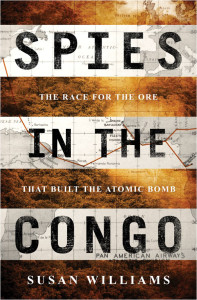
Spies in the Congo: The Race for the Ore that built the Atomic Bomb
Susan Williams
Hurst (hardcover), 2016
PRs 4,500
In the 1940s, the brightest minds of the United States and Nazi Germany raced to West Africa with a single mission: to secure the essential ingredient of the atomic bomb—and to make sure nobody saw them doing it
Albert Einstein told President Franklin D. Roosevelt in 1939 that the world’s only supply of uniquely high-quality uranium ore—the key ingredient for bomb— could be found in the Katanga province of the Belgian Congo at the Shinkolobwe Mine. Once the US Manhattan Project was committed to developing atomic weapons for the war against Germany and Japan, the rush to procure this uranium became a top priority—one deemed “vital to the welfare of the United States.”
But covertly exporting it from Africa posed a major risk: the ore had to travel via a spy-infested Angolan port or 1,500 miles by rail through the Congo, and then be shipped by boats or Pan Am Clippers to safety in the United States. It could be poached or smuggled at any point on the orders of Nazi Germany. To combat that threat, the US Office of Strategic Services sent in a team of intrepid spies, led by Wilbur Owings “Dock” Hogue, to be America’s eyes and ears and to protect its most precious and destructive cargo.
Packed with newly discovered details from American and British archives, this is the gripping, true story of the unsung heroism of a handful of good men—and one woman—in colonial Africa who risked their lives in the fight against fascism and helped deny Hitler his atomic bomb.
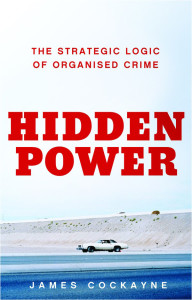
Hidden Power: The Strategic Logic of Organized Crime
James Cockayne
Hurst (hardcover), 2016
PRs 3,595
What should we make of the outsized role organized crime plays in conflict and crisis, from drug wars in Mexico to human smuggling in North Africa, from the struggle in Crimea to scandals in Kabul? How can we deal with the convergence of politics and crime in so-called ‘mafia states’ such as Guinea-Bissau, North Korea or, as some argue, Russia?
Drawing on unpublished government documents and mafia memoirs, James Cockayne discovers the strategic logic of organized crime, hidden in a century of forgotten political—criminal collaboration in New York, Sicily and the Caribbean. He reveals states and mafias competing - and collaborating — in a competition for governmental power. He discovers mafias influencing elections, changing constitutions, organizing domestic insurgencies and transnational terrorism, negotiating peace deals, and forming governmental joint ventures with ruling groups. And he sees mafias working with the US government to spy on American citizens, catch Nazis, try to assassinate Fidel Castro, invade and govern Sicily, and playing unappreciated roles in the Bay of Pigs fiasco and the Cuban Missile Crisis.
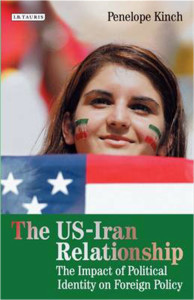
The US-Iran Relationship: The Impact of Political Identity on Foreign Policy
Penelope Kinch
I B Tauris (hardcover), 2016
PRs 12,400
Since the Revolution of 1978/79, which eventually brought to power Ayatollah Khomeini and his circle of conservative, though politically active, clerics, the relationship between Iran and the USA has represented one of the world’s most complex and hostile international entanglements. In this book, Penelope Kinch analyses the extent to which political identity has contributed to challenges in the relationship and the role of myths in foreign policy. Kinch first examines the construction of political identity in each country, and thereby traces the imagined norms which have their impact on international behaviour. Looking at the misperceptions that have precluded closer communication between the two states, Kinch examines both historical issues, such as the 1979 US embassy hostage crisis as well as more contemporary crises, most notably over Iran’s nuclear power programme.
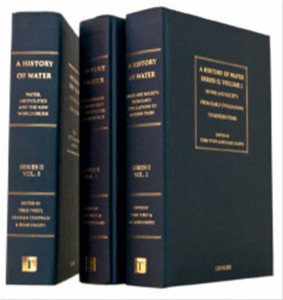
A History of Water Series III (3-volume set)
Edited by Terje Tvedt and Terje Oestigaard
I B Tauris (hardcover), 2016
PRs 40,500
These three volumes present an original exploration of all aspects of water – social, cultural, political, religious, historical, economic and technological – from ancient times until the present day. Among the varied themes, the contributors examine the changing histories of water as a private or common good, the politics of water at local, urban, national and international level. With empirical and ethnographic case studies from around the world the three volumes together represent one of the most complete and up to date accounts of the central role of water in the history and development of humanity.

